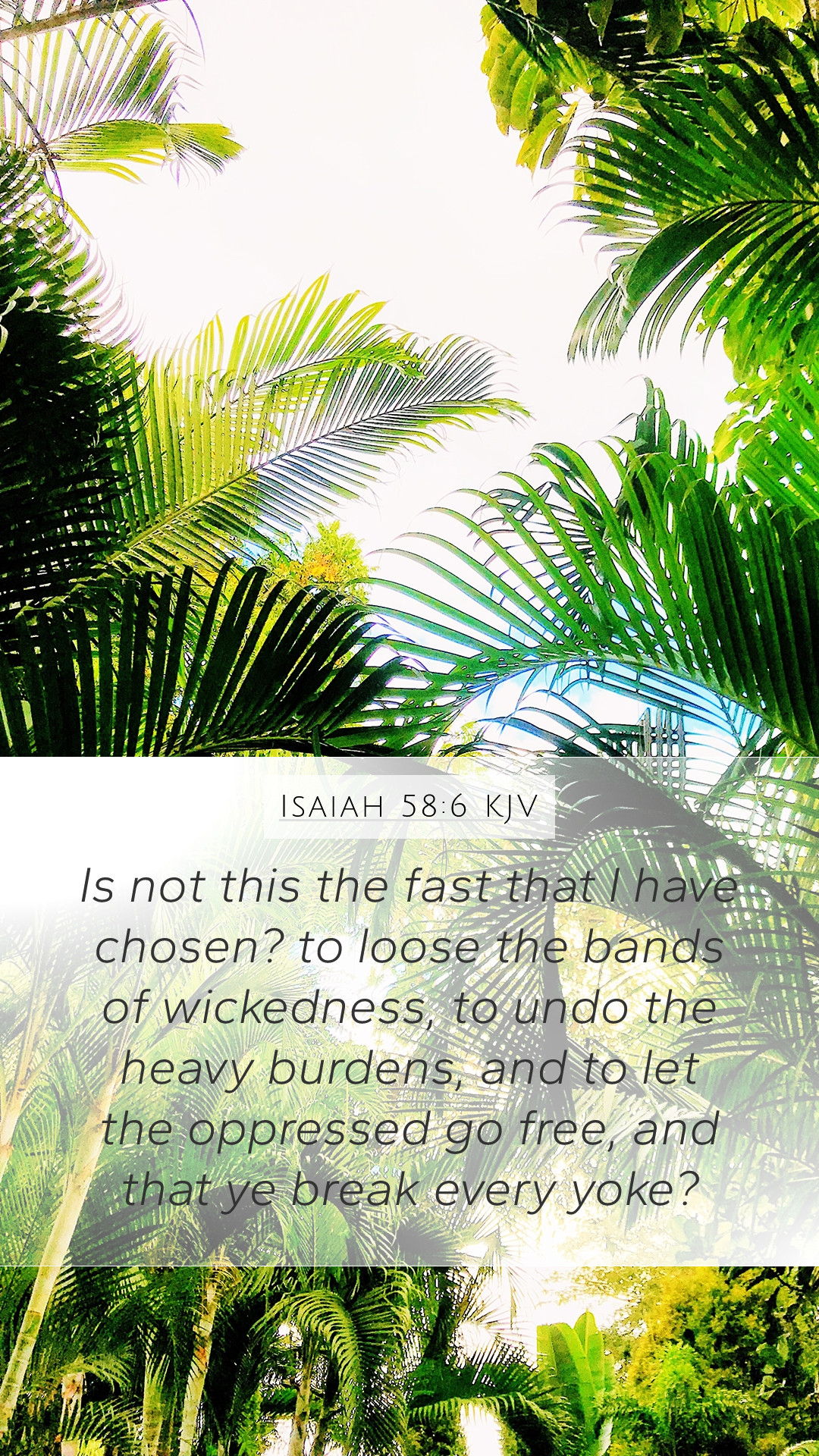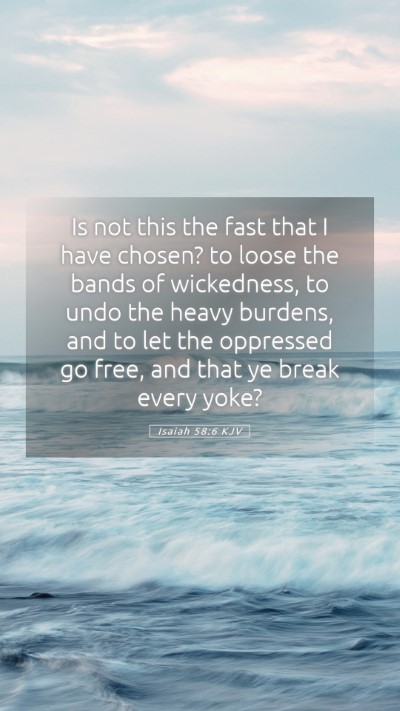Understanding Isaiah 58:6
Isaiah 58:6 states: "Is not this the fast that I have chosen? to loose the bands of wickedness, to undo the heavy burdens, and to let the oppressed go free, and that ye break every yoke?" This verse highlights the meaningful aspect of fasting as prescribed by God, contrasting the outward ritual often associated with fasting and the true spiritual freedom that God seeks in His people.
Bible Verse Meaning
This verse emphasizes that true fasting is not about mere abstaining from food but about engaging in acts of righteousness. It calls for a deep inner transformation, focusing on justice and compassion rather than mere ritual compliance.
Commentary Insights
Insights from public domain commentaries provide a richer understanding of the implications of Isaiah 58:6:
- Matthew Henry: He explains that the fast God desires transcends personal piety and embraces social justice. Henry emphasizes that the effects of such fasting should include promoting liberation from sin and oppression, suggesting that genuine spiritual expressions lead to tangible improvements in societal conditions.
- Albert Barnes: Barnes notes that God’s chosen fast involves not only deliverance from sin but also active participation in the liberation of others. He correlates the concept of breaking yokes of oppression with living out faith through acts of mercy and kindness, thus reinforcing the need for practical application of one’s beliefs.
- Adam Clarke: Clarke builds upon the theme of divine expectation beyond rituals. He posits that while fasting is important, it is even more vital to reflect God’s heart by caring for others, thereby making a significant impact on the community and enhancing spiritual authenticity through compassionate actions.
Key Themes
From the above commentaries, several key themes emerge that can enhance our understanding of the verse:
- Social Responsibility: Reflects God's desire for His people to actively engage in combating injustice and oppression.
- Spiritual Integrity: True devotion must align with our actions towards others, ensuring that our faith produces good works.
- Holistic Worship: Worship is not only about personal sacrifice but also about serving and uplifting those who are marginalized.
Practical Applications
Applying Isaiah 58:6 to our lives can transform how we approach spiritual practices:
- Engage in Community Service: Actively participate in initiatives that aid the underserved, reflecting the compassion of Christ.
- Advocate for Justice: Use one's voice to stand against societal injustices and contribute to change.
- Develop a Mindset of Generosity: Foster a heart that seeks to give rather than just receive, embodying the spirit of outreach.
Cross References
This verse is closely related to several other biblical passages that echo its themes:
- Matthew 25:35-40: Discusses serving the least among us as serving Christ.
- Micah 6:8: Calls for acting justly, loving mercy, and walking humbly with God.
- James 1:27: Mentions true religion as caring for orphans and widows in their distress.
Conclusion
In summary, Isaiah 58:6 calls God's people to a deeper understanding of what it means to fast and serve. It challenges believers to move beyond mere ritual into a life characterized by justice, mercy, and genuine care for others. This profound perspective invites us into greater engagement with our communities and underscores the significant role that our faith plays in social action.
Further Study
For those interested in delving deeper into the meanings of Bible verses, particularly Isaiah 58:6, consider the following:
- Bible verse explanations provided by various online Bible study resources.
- Bible study guides focusing on the themes of justice and mercy in Scripture.
- In-depth analysis of related biblical texts.


